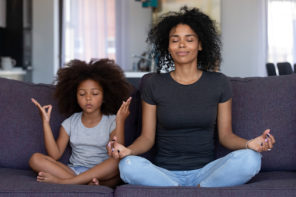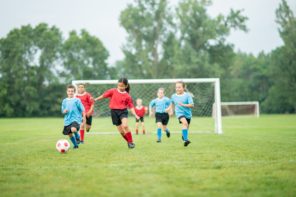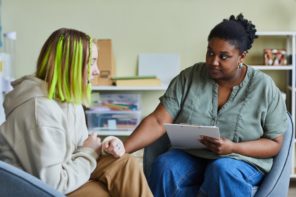Today, kids go online daily to learn, socialize and express themselves. Together with parents, YouTube wants to make that time online as engaging and inspiring as possible. That’s why we strive to provide young people with a platform and tools to navigate their growing individual interests while putting their safety, privacy and well-being first.
Since the earliest days of YouTube, our Community Guidelines have communicated what’s allowed on the platform. Our Youth Principles define our special commitment to young users.
Here’s what parents should know about what’s new at YouTube.
YouTube Experiences that Keep Young Users Safer
Insights from our Advisory Committee of independent experts on children’s media, child development and digital learning led us to develop additional safeguards for content recommendations for teens, while still allowing them to explore the topics they love. The Advisory Committee helped us define categories of videos that are innocuous in a single view, but that could be problematic if viewed in repetition for some young viewers.
We’re now limiting repeated recommendations of videos that may include the following topic areas for teens in the United States, with more countries to be added over the next year:
- Compares physical features and idealizes some types over others
- Idealizes specific fitness levels or body weights
- Features social aggression (non-contact fights and intimidation)
We’re also updating a few of our existing products to make them even more useful for teens. First, our Take a Break and Bedtime reminders will be more visually prominent and appear more frequently, including a default setting for Take a Break reminders every 60 minutes. YouTube’s crisis resource panels are expanding into full-page experiences that will help viewers pause and explore “help topics” when they search on YouTube for certain queries related to suicide, self-harm and eating disorders. Viewers will also more prominently see resources for third-party crisis hotlines and suggested prompts to steer their search queries towards topics like “self-compassion” or “grounding exercises.”
New Resources to Support Teen Creators & Parents
For many teens, content creation can be a creative outlet allowing them to express themselves, share stories and connect with peers. We’ve partnered closely with Common Sense Networks in the past around quality principles for kids content, and we’re extending this work to produce new educational resources for parents and teens, bringing families together for important conversations on responsibly creating videos online. This will include guidance on developing intentional and safe online habits, creating content with empathy and awareness and best practices for approaching comments, shares and other online interactions.
We’re excited to build on our work related to youth experiences, digital wellbeing and mental health, with more to come in the future. We recognize the important role that YouTube can play in the life of young people and are deeply committed to ensuring time on YouTube is time well spent.
James Beser is Senior Director of Product Management, YouTube Kids & Youth
National PTA does not endorse any commercial entity, product, or service. No endorsement is implied.





